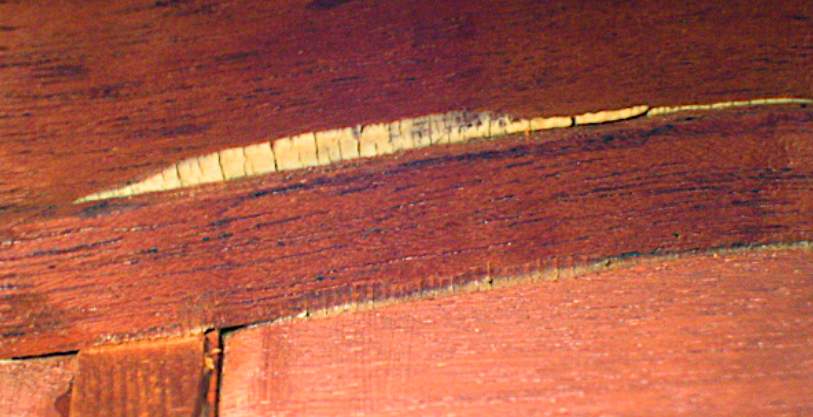At the suggestion of JJ, I have acquired a few old guitars to strip, pore fill and finish since I want to start offering this service soon. Some may remember I recently closed an auto body shop that I had worked at since I was 15 years old and I have an interest in building but mostly in finishing. At any rate, one of the guitars I have is quite interesting. It might be old? It has an arch top of spruce, single cream plastic bound top, maple sides and mahogany back. Mahogany neck with peg head truss nut, "Gibson" looking upper peg head. The guitar is worth saving, needs some braces re-glued. I have stripped the old finish that looks like it was put on with a brush. Here are a couple pics.









